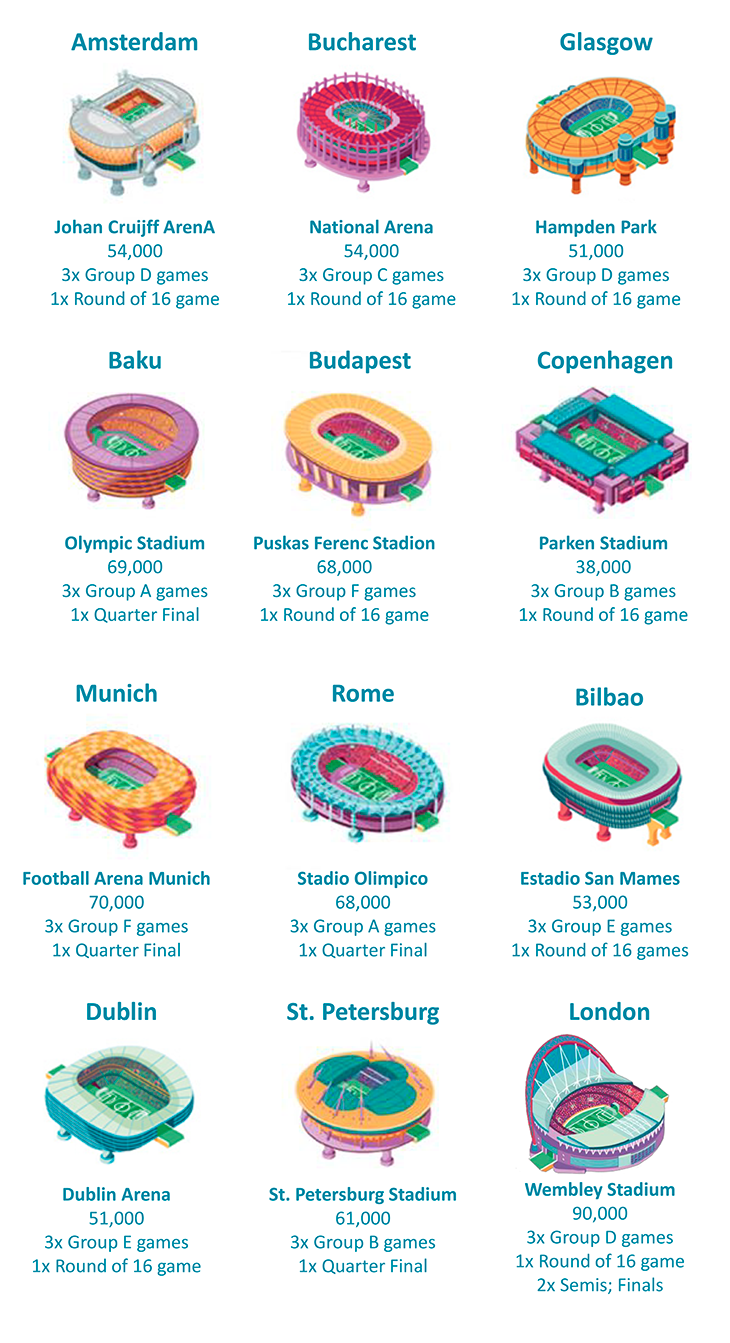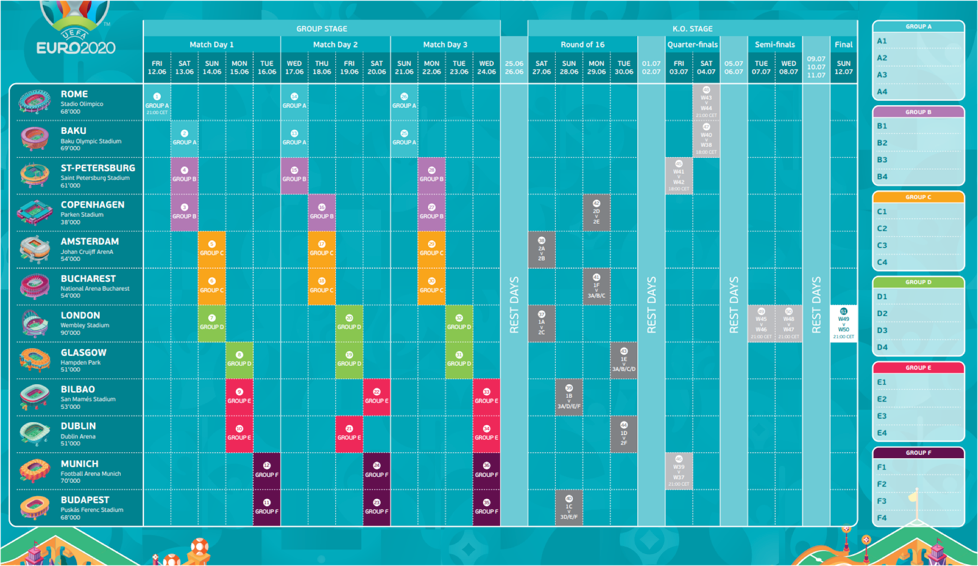Host cities

Rome will be one of the 12 cities that host the 2020 UEFA European Football Championship. The other 11 cities (seven of which are also capital cities) are Amsterdam, Baku, Bilbao, Bucharest, Budapest, Copenhagen, Dublin, Glasgow, London, Monaco and Saint Petersburg. There will be 11 stadiums that can accommodate more than 50,000 fans, while seven counties are set to host the final tournament for the first time (Azerbaijan, Denmark, Hungary, Republic of Ireland, Romania, Russia and Scotland).
Italy will be hosting the European Championship for the third time, with the final of this tournament already having been held at the Stadio Olimpico in Rome twice (1968 and 1980). A total of 51 matches will be played, the first of which will take place at the aforementioned stadium (it can hold 68,000 spectators) on 12 June 2020 following the opening ceremony. On 1 December, the draw for the final tournament will take place, although it’s still to be confirmed where exactly this will happen. The tournament’s mascot will be presented at the end of March 2019, when the European qualifying matches are set to begin.
The tournament’s concept. UEFA want EURO 2020 to be a “pan-European football festival”. It’ll be a 24-team tournament that will take place in 12 cities. However, only one city (London) will host the semi-finals and final. UEFA chose to do this to get a number of federations, countries and cities involved in organising it in order to promote a spirit of shared participation within the European football family 60 years on from the first European Championship tournament.
The “Euros for Europe” concept came into being in December 2012, when then-UEFA President Michel Platini’s proposal based on this idea was approved by the UEFA Executive Committee in London. In April 2013, European federations were sent invitations to bid to stage games at the tournament, 32 of which declared an interest in doing so in September of that year. On 25 April 2014, UEFA announced that 19 cities had submitted dossiers. There were two bids for both the Finals Package and Standard Package, while there were 17 bids for just the Standard Package.
UEFA then assessed the dossiers that had been handed in and published evaluation reports of the bids on 10 September 2014. Members of UEFA’s Executive Committee then chose the host cities on 19 September in Geneva.
Cities and stadia for EURO 2010
| City | Country | Stadium |
|---|---|---|
| FINAL AND SEMI-FINAL | ||
| London | Inghilterra | Wembley Stadium |
| THREE GROUP GAMES AND A QUARTER-FINAL | ||
| Baku | Azerbaijan | Olympic Stadium |
| Munich | Germany | Football Arena Munich |
| Rome | Italy | Stadio Olimpico |
| Saint Petersburg | Russia | Saint Petersburg Stadion |
| THREE GROUP GAMES AND A LAST 16 MATCH | ||
| Amsterdam | Netherlands | Amsterdam Arena |
| Bilbao | Spain | San Mamés Stadium |
| Bucharest | Romania | National Arena |
| Budapest | Hungary | Puskás Ferenc Stadion |
| Copenhagen | Denmark | Parken Stadium |
| Dublin | Republic of Ireland | Dublin Arena |
| Glasgow | Scotland | Hampden Park |
| London | England | Wembley Stadium |
| Girone A | Italy (Stadio Olimpico, Roma) | Azerbaijan (Stadio Olimpico, Baku) |
| Girone B | Russia (Saint Petersburg Stadium) | Denmark (Parken, Copenhagen) |
| Girone C | Netherlands (Johan Cruijff ArenA, Amsterdam) | Romania (Arena Națională, Bucharest) |
| Girone D | England (Wembley Stadium, London) | Scotland (Hampden Park, Glasgow) |



